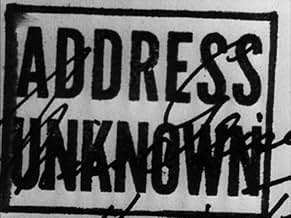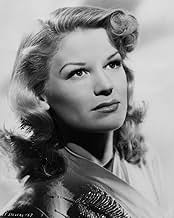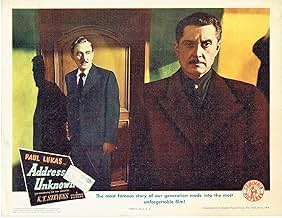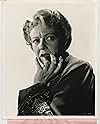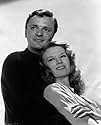अपनी भाषा में प्लॉट जोड़ेंA U.S.-based art dealer travels to his former homeland of Germany, where he becomes dangerously susceptible to Nazi propaganda.A U.S.-based art dealer travels to his former homeland of Germany, where he becomes dangerously susceptible to Nazi propaganda.A U.S.-based art dealer travels to his former homeland of Germany, where he becomes dangerously susceptible to Nazi propaganda.
- निर्देशक
- लेखक
- स्टार
- 2 ऑस्कर के लिए नामांकित
- 1 जीत और कुल 2 नामांकन
- Youngest Schulz Boy
- (as Larry Joe Olsen)
- Rock-Tossing Rioter
- (बिना क्रेडिट के)
- Nazi Party Member
- (बिना क्रेडिट के)
फ़ीचर्ड समीक्षाएं
The story develops through letter correspondence between the two friends, Martin and Max. There are several stand out scenes, my favourites being the performance at the theatre when Griselle disobeys the Nazi authorities and the following chase that ensues in order to catch her. The acting is good, particularly from Carl Esmond. You just know that there is a nasty ulterior motive lurking behind everything that he says and does. Once Martin begins to receive coded letters, suspicion is aroused by the German censors and it's a matter of time before something happens to him... There is a twist at the end.
The film begins in the 1930s. Paul Lukas and his wife and kids (minus the oldest one) are leaving the US and moving back to Germany. They also decide to take their god-daughter (who is Jewish). Once there, Lukas slowly turns from a nice family man to a Nazi-lover. In the process, all sense of right and wrong seems to disappear from him. And, when his beloved god-daughter is in trouble, he refuses to help. At this point, there is a neat twist in the film involving coded messages and revenge. I won't say more, as it would spoil the film. Suffice to say that this twist gives the film a nice and fitting ending.
The acting, mood and story are all quite good and the film worth seeing. While not a great film it is clever and well-written--and a very good propaganda film to galvanize the folks at home in the war effort.
I feel that the opening scenes are very good and authentically display the friendship between Max and Martin and their families and this of course makes the story all the more powerful.
I have read the short story/book on which the film is based - it is available to borrow from the Internet Archive on line free library - and in my opinion this one if the rare occasions when the film is better than the book, largely due to the devastating end twist in the film.
क्या आपको पता है
- ट्रिवियाK.T. Stevens (real name: Gloria Wood) is the daughter of the film's producer, Sam Wood.
- गूफ़When Griselle first puts her bloody hand on the frame of Schulz's entrance door after he opens up, the right hand is placed at a certain height and angle while the fingers are spread in a certain shape. But in the following cuts, the hand and fingers have constantly changed angles and positions. In addition, the shape of the bloody hand-print left on the door frame after Schulz closes the door does not match the shape and location Griselle originally placed her hand.
- भाव
Baron von Friesche: Does he know the conditions he doesn't like? I find that hard to understand. I myself would hesitate to form conclusions without firsthand evidence. You must set him right. I suppose it isn't easy for a foreigner to understand the agonies our people have suffered since the Treaty of Versailles. What years of less and less bread, of leaner bodies, of the end of hope...
[pauses to offer Herr Schulz a cigarette]
Martin Schulz: [accepting a cigarette] Oh, thank you.
Baron von Friesche: The quicksand of despair held us. Then just before we died, a man came and pulled us out.
Baron von Friesche: [turning to Herr Professor] You are a native of Munich, Herr Professor?
Professor Schmidt: Well, uh...
Baron von Friesche: You have *witnessed* this deliverance.
Professor Schmidt: If it *is* a deliverance...
Baron von Friesche: [turning to Herr Schulz] You know, there's a surge, my friend. A surge. Our whole despair has been thrown aside like a forgotten coat. No longer do we wrap ourselves in shame.
Baron von Friesche: [turning to Herr Professor] What can be wrong about a man who affects people so?
Professor Schmidt: When people are hungry, they don't care *what* kind of a man it is who gives them bread.
- क्रेज़ी क्रेडिटThe final fade-out is a closeup of the returned letter, specifically the "Address Unknown" stamped in English. It forms an end title card, which was itself unusual for its time.
टॉप पसंद
विवरण
- चलने की अवधि1 घंटा 15 मिनट
- रंग
- पक्ष अनुपात
- 1.37 : 1
इस पेज में योगदान दें



